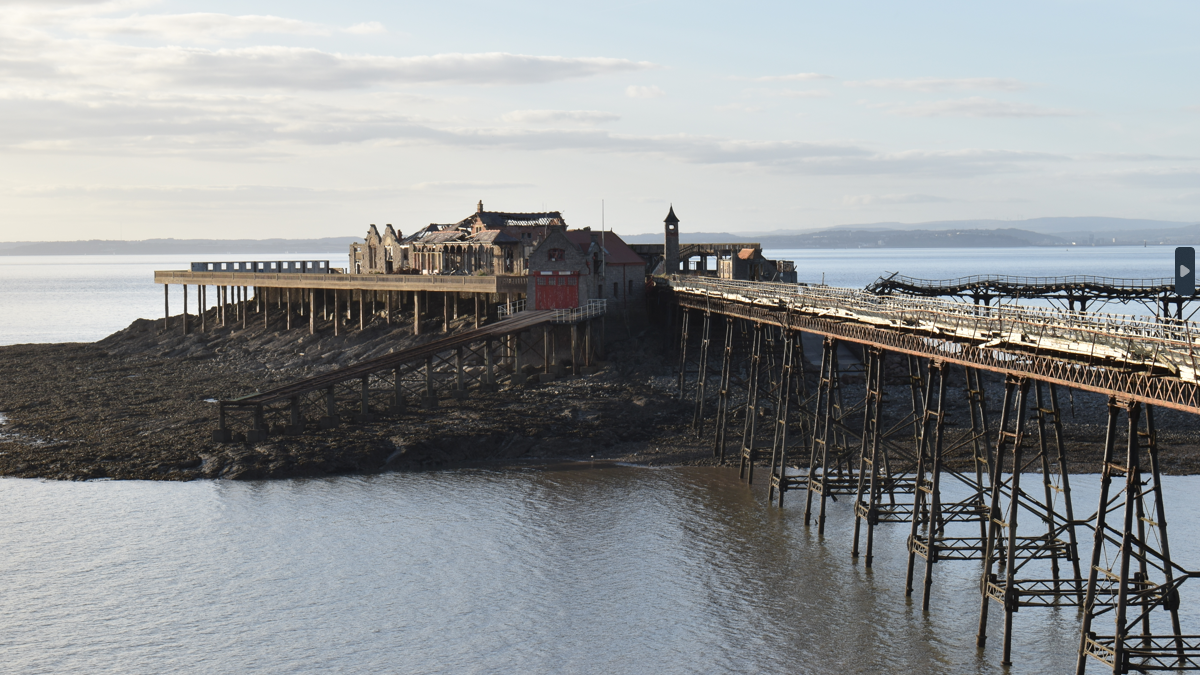Funding to 'breathe new life' into heritage sites
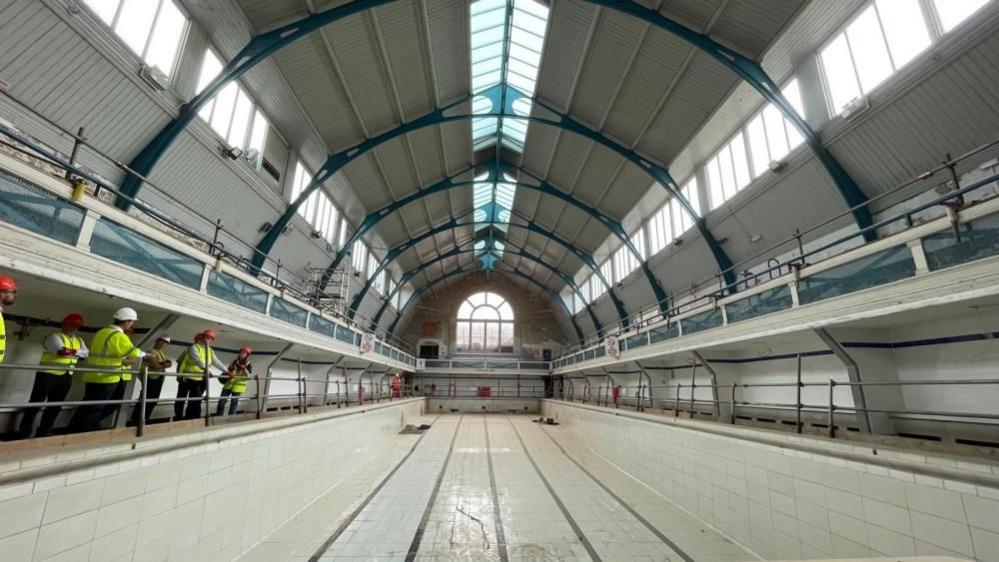
Swindon's Health Hydro is due to reopen in 2026
- Published
Historic Turkish baths, a listed building leading to a derelict pier, and an 18th Century pin factory have been awarded a share of a £15m restoration grant.
The heritage sites in Wiltshire, Gloucestershire and North Somerset will split more than £800,000 as part of a project led by Historic England and funded by the government.
It is hoped the fund will create jobs and community spaces in disadvantaged areas.
Historic England said the money would "breathe new life" into neglected historic buildings and create "amazing opportunities" for local residents.
The Turkish baths at Swindon's Grade II-listed Health Hydro will receive more than £500,000 towards repairs.
After opening in 1904, they were the oldest continually functioning Victorian style Turkish baths in the country before being closed for restoration works in 2023.
Money from the Heritage at Risk Capital Fund will be used to mend the bath's roof and improve the roof structure.
With the Health Hydro set to reopen in 2026, Historic England said the repair would lead to "affordable and inclusive programming" for visitors.
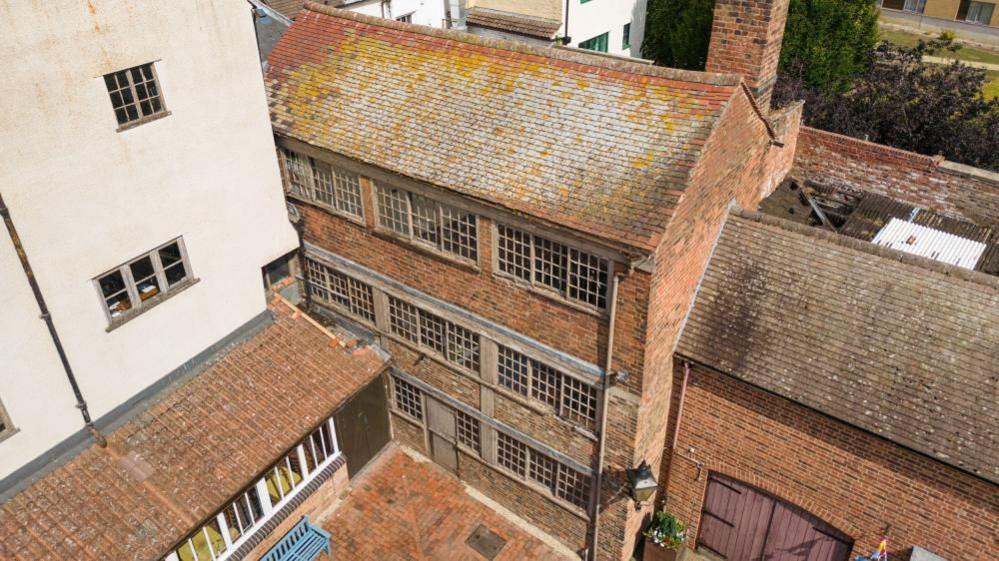
The Pin Factory forms part of the Folk of Gloucester community space
Funding has also been earmarked to help repair Gloucester's Folk Pin Factory so that it can hold community events.
Originally constructed more than 280 years ago, the timber-framed barn was converted into a factory in the 18th Century and formed party of the city's pin-making industry.
More than £142,000 will be spent on repairing the building, including restoring deteriorating windows and fixing the western wall.
Martyn White, chair of the Gloucester Civic Trust said the funding was "wonderful news" and that a plan is in place to "get the work done".
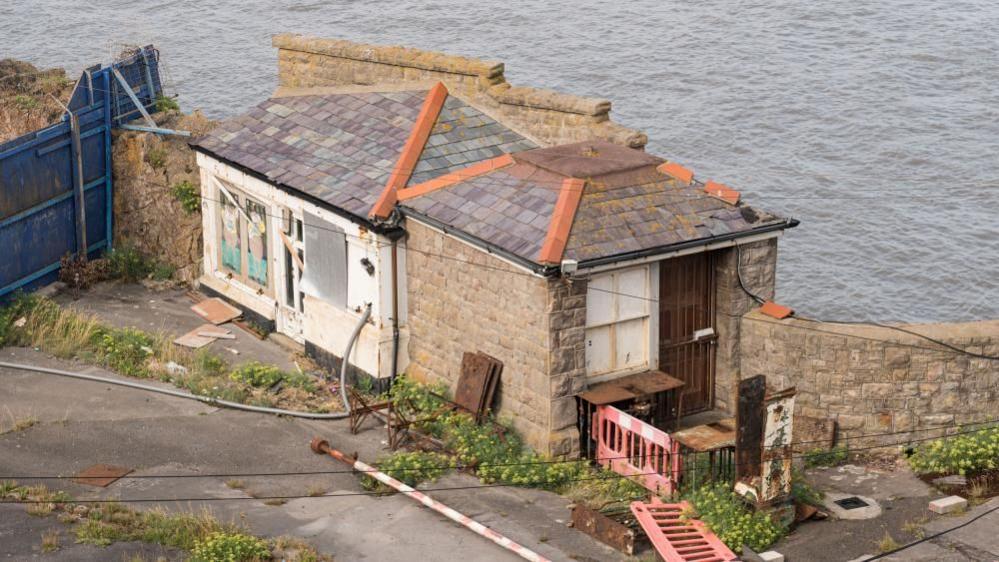
The Toll House at Birnbeck Pier will be used to host exhibitions once restored
The Toll House in Weston super Mare sits opposite Birnbeck Pier, the only pier in the country that connects to an island.
First opened in the 1860s, the pier was a popular seaside attraction before closing to the public in 1994.
The Grade II-listed Toll House will receive more than £110,000 in the hope that it will be become a volunteer hub and information point for visitors.
Despite uncertainty over the future of the wider restoration of the pier, North Somerset Councillor, Mark Canniford - who is overseeing the Birnbeck project - said the money would help "re-engage locals and tourists" in what he called a "significant Weston landmark".
Follow BBC Bristol on Facebook, external, X, external and Instagram, external. Send your story ideas to us on email or via WhatsApp on 0800 313 4630.
- Published22 July
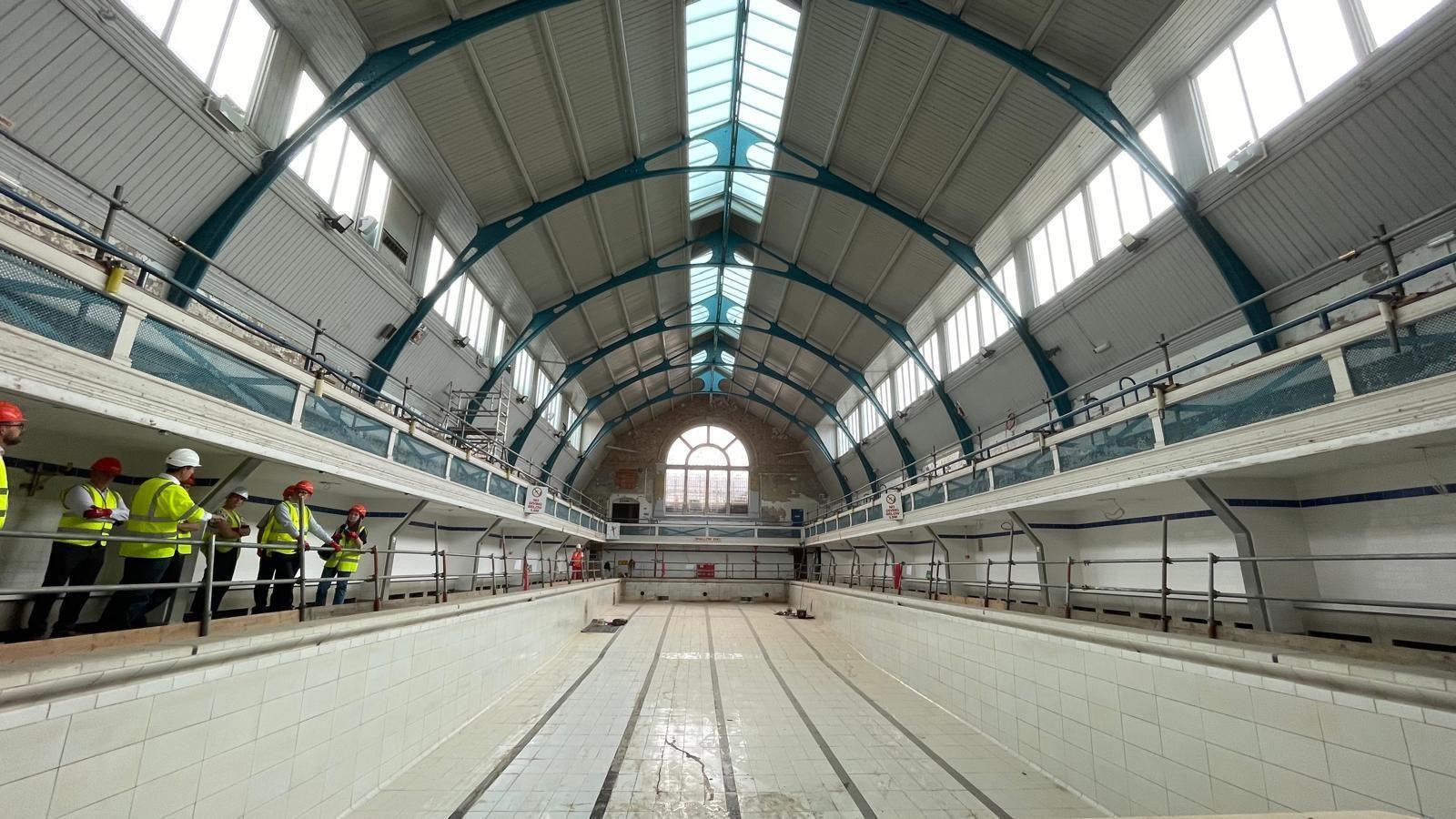
- Published9 May
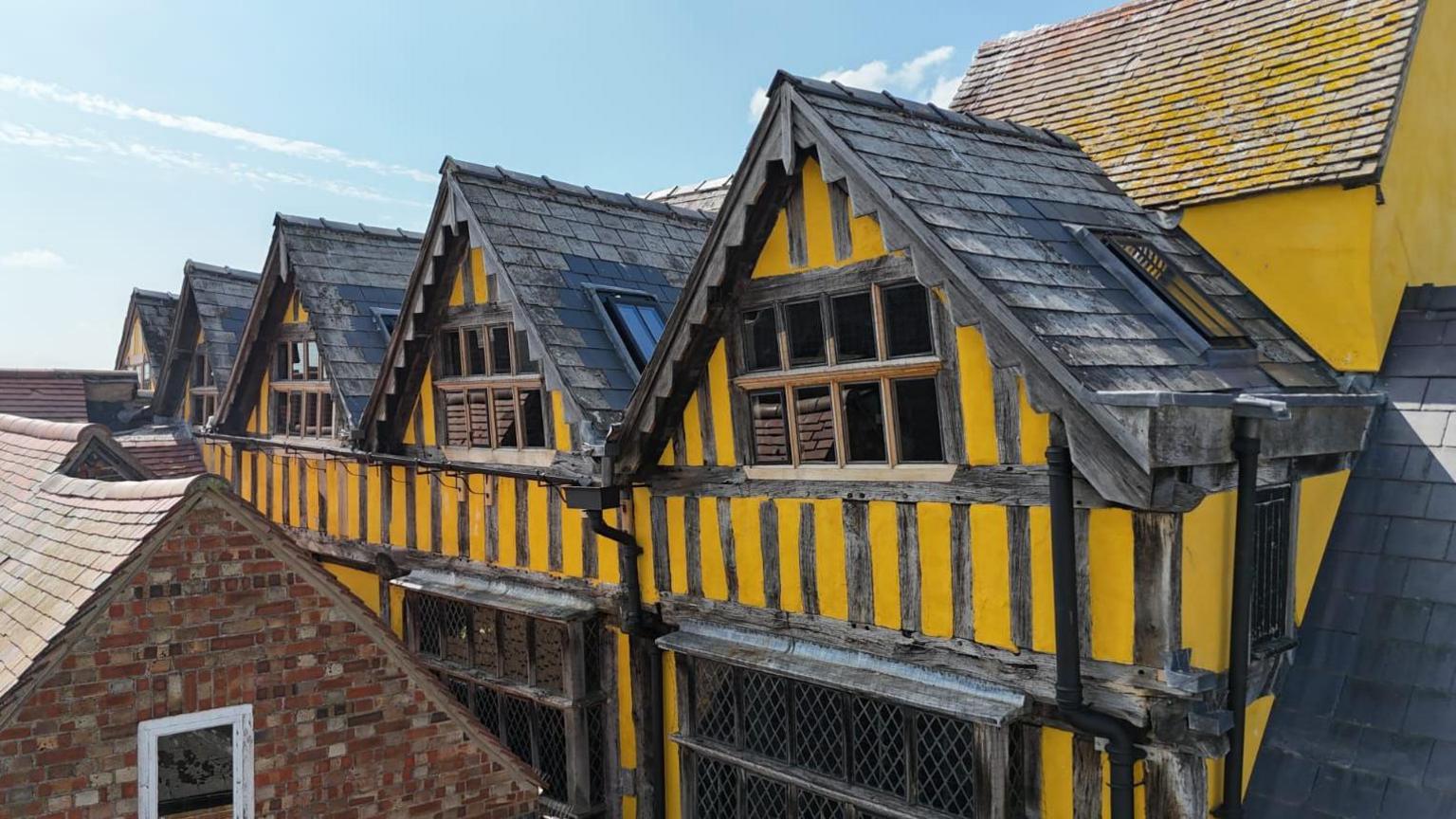
- Published27 June
